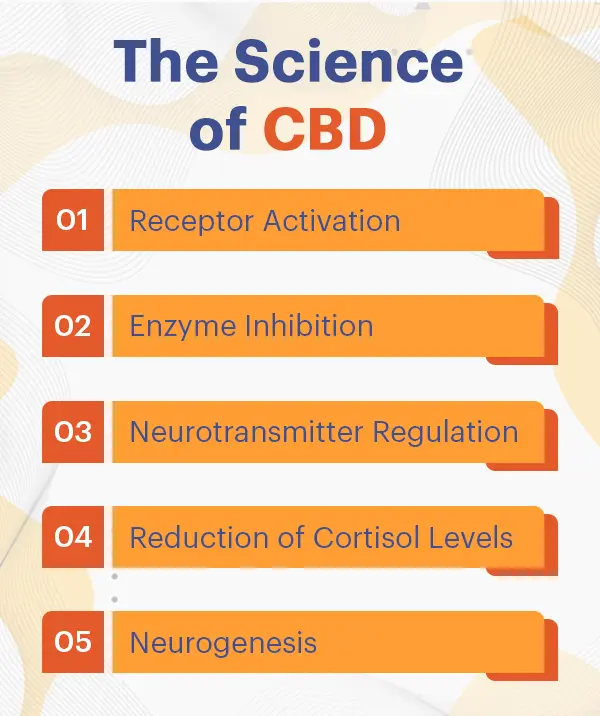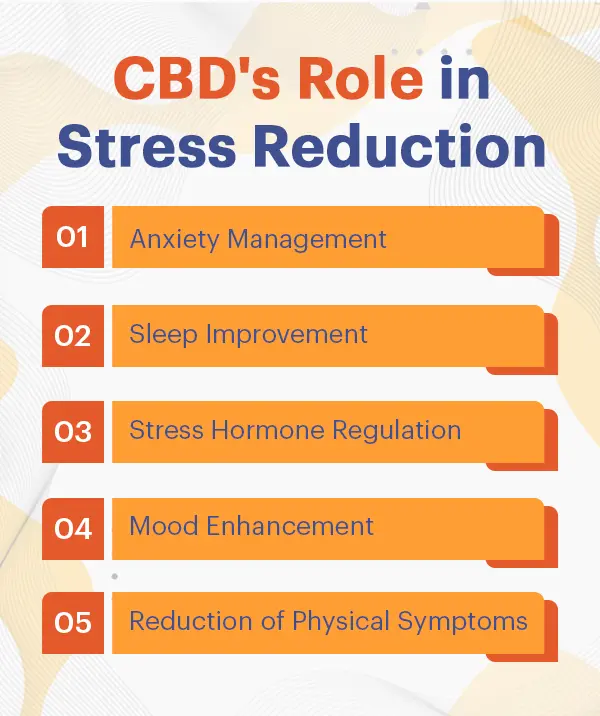
Stress has become an unwelcome companion in our fast-paced modern lives. The demands of work, personal responsibilities, and the ever-present digital connectivity can leave us feeling overwhelmed. Fortunately, a natural remedy has been capturing the spotlight for its potential to restore balance and harmony to our lives: CBD. CBD, short for cannabidiol, is a compound found in the cannabis plant. Unlike its cousin, THC, CBD doesn’t produce the psychoactive effects associated with marijuana use. Instead, it offers a range of potential therapeutic benefits, including stress reduction. In this article, we’ll explore how CBD can play a vital role in alleviating stress and promoting overall well-being.
Understanding Stress and Its Impact
Before we dive into the world of CBD and its stress-reducing properties, let’s take a moment to understand stress itself. Stress is the body’s natural response to perceived threats or challenges. When we encounter a stressful situation, our bodies release stress hormones like cortisol and adrenaline, preparing us for a fight-or-flight response. While this response can be lifesaving in genuinely dangerous situations, prolonged or chronic stress can have detrimental effects on our health.
Chronic stress has been linked to a range of health issues, including:
- Anxiety: Persistent stress can lead to anxiety disorders characterized by excessive worry, fear, and restlessness.
- Depression: Chronic stress is a known risk factor for depression, a mood disorder that can affect every aspect of a person’s life.
- Heart Problems: Stress can contribute to high blood pressure, heart disease, and other cardiovascular issues.
- Digestive Disorders: It can disrupt digestion, leading to problems like irritable bowel syndrome (IBS).
- Weakened Immune System: Chronic stress can suppress the immune system, making us more susceptible to infections.
- Sleep Disturbances: Stress can interfere with sleep, leading to insomnia and sleep disorders.
- Pain and Tension: It can exacerbate pain conditions and contribute to muscle tension.
The Science of CBD
To truly appreciate how CBD works its stress-reducing magic, let’s delve deeper into its science. CBD, which stands for cannabidiol, is a natural compound extracted from the hemp plant. It’s essential to note that CBD differs significantly from its cousin, THC, found in marijuana. While THC is renowned for its psychoactive effects, often associated with the feeling of being “high,” CBD takes a different path within our bodies. The secret to CBD’s potential lies in its interaction with our endocannabinoid system (ECS). The ECS is a complex network of receptors, enzymes, and endocannabinoids naturally produced by our bodies. This intricate system plays a crucial role in regulating various physiological processes, including our responses to stress.
When you consume CBD, it interacts with the ECS in various ways:

- Receptor Activation: CBD can bind to CB1 and CB2 receptors, albeit with a low affinity. This interaction influences the release of neurotransmitters and can contribute to the modulation of stress responses.
- Enzyme Inhibition: CBD inhibits the enzyme FAAH (fatty acid amide hydrolase), which breaks down anandamide, a natural endocannabinoid often called the “bliss molecule.” By inhibiting FAAH, CBD increases anandamide levels, promoting feelings of well-being and relaxation.
- Neurotransmitter Regulation: CBD influences the activity of various neurotransmitters, such as serotonin and GABA, which play vital roles in mood regulation and stress management.
- Reduction of Cortisol Levels: Cortisol, known as the “stress hormone,” is often overproduced during periods of chronic stress. CBD may help regulate cortisol production, preventing it from reaching excessive levels.
- Neurogenesis: Some studies suggest that CBD may promote neurogenesis by forming new brain cells. This could have a positive impact on stress-related brain changes.
All of these interactions contribute to CBD’s potential stress-reducing effects. CBD is a natural regulator of stress responses by influencing our endocannabinoid system and modulating various physiological processes, promoting a sense of calm and balance.
The Benefits of CBD in Stress Management
CBD, short for cannabidiol, has gained popularity recently as a potential natural remedy for stress reduction. It offers various benefits that can help individuals cope with the challenges of modern life.
One of the primary ways CBD contributes to stress management is by interacting with the endocannabinoid system (ECS) in our bodies. The ECS plays a vital role in regulating various physiological processes, including stress response. When you consume CBD, it interacts with receptors in the ECS, potentially leading to a more balanced and less reactive response to stressors.
Moreover, CBD has shown promise in reducing anxiety levels. Many individuals who experience chronic stress also struggle with anxiety disorders. CBD can help alleviate the symptoms of anxiety, making it easier for people to face stressful situations with composure.
CBD’s Role in Stress Reduction
Let’s dive into some specific ways CBD can be a powerful ally in stress reduction:

- Anxiety Management: One of the most well-known benefits of CBD is its potential to reduce anxiety. Stress often goes hand in hand with heightened anxiety levels, and CBD can help by interacting with receptors in the brain responsible for regulating fear and anxiety. When you consume CBD, it influences these receptors, helping individuals feel calmer and more composed. Whether you’re dealing with everyday stressors or specific anxiety disorders, CBD may provide relief without the side effects often associated with traditional anxiety medications.
- Sleep Improvement: Chronic stress can wreak havoc on your sleep patterns, leading to insomnia or disrupted sleep. CBD offers a natural solution to this common problem. By addressing the root causes of sleep disturbances, such as anxiety, pain, or racing thoughts, CBD can promote better sleep quality. Many individuals report falling asleep more easily, experiencing deeper sleep, and feeling refreshed after incorporating CBD into their nighttime routine.
- Stress Hormone Regulation: When we’re under stress, our bodies produce increased cortisol levels, often called the “stress hormone.” While cortisol is essential for our survival and the body’s fight-or-flight response, chronic elevation of cortisol can lead to various health issues. CBD may help regulate cortisol levels, preventing them from reaching excessive heights during periods of stress. By modulating cortisol release, CBD contributes to a more balanced stress response, promoting a sense of calm and well-being.
- Mood Enhancement: Beyond its direct impact on stress and anxiety, CBD can positively influence mood. It interacts with neurotransmitters such as serotonin and GABA, which play vital roles in mood regulation. By modulating the activity of these neurotransmitters, CBD can promote feelings of relaxation and happiness, making it easier to navigate stressful situations with a more positive outlook.
- Reduction of Physical Symptoms: Stress doesn’t just affect our minds; it can manifest physically through muscle tension, headaches, and other discomforts. CBD’s anti-inflammatory properties may help alleviate these physical symptoms of stress. CBD can contribute to an overall sense of relief and well-being by reducing inflammation and promoting muscle relaxation.
Read More: Elevate Your Day and Night: The Dual Power of Inflow’s CBD Oils
Using CBD for Relaxation and Anxiety Reduction
If you’re considering using CBD for relaxation and anxiety reduction, it’s essential to approach it thoughtfully and responsibly. Here are some key steps:
- Consultation: Consult a healthcare professional before incorporating CBD into your stress management routine. They can provide personalized guidance on dosages and potential interactions with medications.
- Choosing the Right Product: CBD is available in various forms, including oils, capsules, edibles, and topical creams. Select a product that aligns with your preferences and specific needs.
- Starting with Low Doses: If you’re new to CBD, begin with a low dosage and gradually increase it until you find the right balance for managing stress and anxiety.
- Consistency: Consistency is crucial when using CBD. Incorporate it into your daily routine for the best results, and be patient, as it may take some time to experience the full benefits.
Using CBD for Stress Reduction
When it comes to using CBD for stress reduction, it’s essential to start with the right approach:
- Consultation: Before incorporating CBD into your stress management routine, consult a healthcare professional. They can provide guidance on dosages and potential interactions with medications.
- Choosing the Right Product: CBD comes in various forms, including oils, capsules, edibles, and topical creams. Select a product that suits your preferences and needs.
- Starting with Low Doses: If you’re new to CBD, start with a low dosage and gradually increase it until you find the right balance for your stress management.
- Consistency: Consistency is key when using CBD. Incorporate it into your daily routine for the best results.
Incorporating CBD into Your Stress-Reduction Routine
Using CBD as a tool for stress reduction can be a valuable addition to your daily wellness routine. However, it’s essential to use it wisely and consult with a healthcare professional, especially if you’re currently taking medication or have underlying health conditions.
- Choose High-Quality CBD Products: Opt for reputable CBD brands that offer high-quality, third-party-tested products. This ensures that you’re getting a pure and safe product.
- Start with a Low Dose: If you’re new to CBD, it’s advisable to start with a low dose and gradually increase it until you find the right balance for your needs.
- Consistency is Key: CBD works best when used consistently. Incorporate it into your daily routine, whether through CBD oil drops, capsules, or other forms.
- Consult a Healthcare Professional: If you have concerns about using CBD, consult with a healthcare professional who can provide personalized guidance based on your specific circumstances.
- Combined with Other Stress-Reduction Practices: CBD can complement other stress-reduction practices like mindfulness, meditation, yoga, and regular exercise.
Conclusion
In a world where stress has become the norm, finding natural solutions to reduce and manage it is crucial for our overall well-being. CBD’s potential to alleviate stress, anxiety, and their associated symptoms offers hope for those seeking a more balanced and tranquil life. However, it’s essential to approach CBD use mindfully, seeking guidance when needed, and incorporating it into a holistic stress-reduction routine. With the right approach, CBD can be a valuable ally in the quest for a more stress-free and harmonious life.



